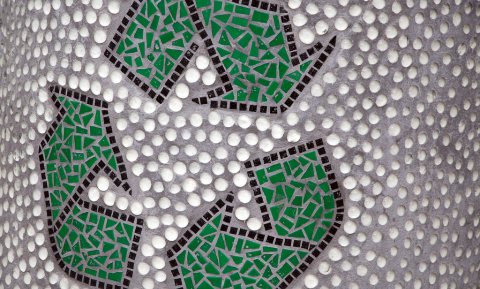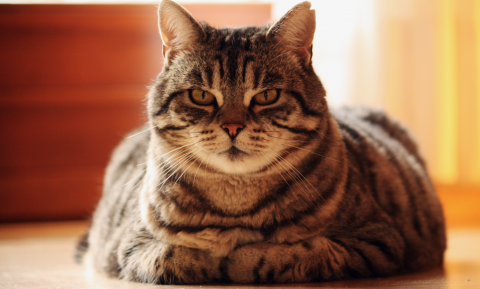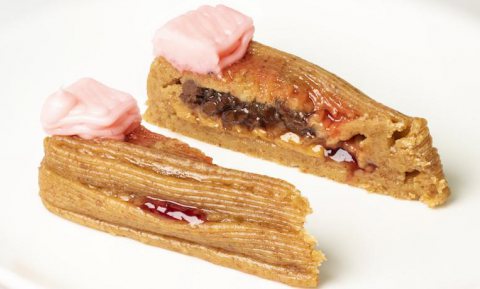Het oorspronkelijke bericht uit Western Morning News:
BRITISH-REARED veal is making a welcome return to British menus, after animal-rights groups, who have been opposed to intensive veal production, made the biggest policy U-turn in decades.
The RSPCA and Compassion in World Farming (CIWF) have been campaigning to see veal off the menu for years. Now they are happy to redeem the meat in the eyes of consumers, so long as it is high-welfare veal.
Rowen West-Henzell, food business manager for CIWF, said: "Veal shouldn't be a dirty word. There is a process of re-education that needs to occur. British Rose veal is something we are happy to endorse."
Veal producers in the Westcountry have welcomed the U-turn from animal-rights campaigners saying it was time consumers realised there was little difference between eating lamb – which is a baby sheep – and eating veal, which is a baby cow.
Adam Stanbury, of Stapleton Farm near Ilfracombe in North Devon, has been selling grass-fed organic veal for 18 months. He said: "Customer attitude is changing, but not fast enough. We need to better educate consumers about veal.
"Our veal is reared outside on grass throughout the summer and housed in winter. It's as natural as you can get.
"There has been a lot of publicity recently about veal, so hopefully it will grow in popularity. People have to understand that rearing calves for nine to 12 months is not a cruel thing to do. At the end of the day veal is just younger beef."
Producers in the region said veal had become the leper-word of the farming world because of the way it is reared in Europe.
Veal is a by-product of the dairy industry. Without a market for veal in the UK, bull calves are
Female calves on the other hand, are kept and raised to become milkers like their mothers.
Last year around 260,000 young male dairy calves were condemned as "waste products" in the UK as they do not produce milk and rarely used for beef due to their low muscle tone.
Simon Wood, the finance manager at the Well Hung Meat company, in Tordean Farm, Buckfastleigh, South Devon, which won a Soil Association gold award in 2006 for its organic Rose Veal, said there was still a stigma attached to veal but insisted it was misguided.
He said: "It's quite bizarre really. Some people are happy to eat lamb which are baby sheep but get hot-headed about veal.
"British Rose veal should not be confused with imported white veal meat which causes such controversy.
"It is important for the British meat industry and for the animals themselves that the stigma attached to continental veal is not associated with well-reared British veal.
"These organic dairy calves have a life span of around six months which is more than chickens and most lambs, and would otherwise be reserved for the export industry or killed at birth."
In recent weeks veal has received TV publicity in programmes such as Channel Four's F-Word in which chef Gordon Ramsay and former Independent editor Janet Street-Porter reared veal to be eaten in the chef's restaurant.
Richard Phelps, managing director of Blade Farming, which is based in Somerset, said: "There has been a stigma attached to veal. They're not just new-born calves. They're six to nine months old and are reared in a high welfare way. It's a very lean meat with many health benefits. At the moment it's a very specialist market in the UK so we're trying to develop consistency among farmers."
Gwyn Jones, the national chairman for the National Farmers' Union Dairy Board, said: "Eating British veal would be great for our farmers. No farmer wants to export bull calves, but there has to be a market for it."
The RSPCA and CIWF have been criticised by People for the Ethical Treatment of Animals. A spokesman for the Bristol-based charity said: "While the plan is well intentioned, the answer to saving calves from long distance transport, confinement in cruel, tiny crates and slaughter soon after birth, doesn't lie in encouraging consumers to eat more British meat.
"Anyone concerned about the welfare of animals should go vegan."
Nog 3
Je hebt 0 van de 3 kado-artikelen gelezen.
Op 3 augustus krijg je nieuwe kado-artikelen.
Op 3 augustus krijg je nieuwe kado-artikelen.
Als betalend lid lees je zoveel artikelen als je wilt, én je steunt Foodlog


_Zuidereiland__landschap_480_289_84_s_c1.jpg)









Ik denk dat diezelfde mensen die zo bewust kopen, weinig of niets van die bijproducten weten. Niet uniek voor kalfsvlees overigens.
In Engeland worden op dit moment door exportproblemen (ziekte) op grote schaal kalveren afgeschoten. De link komt vanaf het AGD waar 1 vd reageerders het geen-vlees-en-zeker-geen-kalfsvlees van de dierenbeweging ziet als 1 vd oorzaken. Dat is vwb de exportstop niet terecht, maar het laat wel het respectloze stigma zien dat op kalfsvlees rust. Martin's opmerking laat het schrijnend zien: hoe is het mogelijk dat het 'bijproduct' van biologische melk en biologisch vlees niet door diezelfde mensen die zo bewust kopen wordt gekocht?
Mijn hypothese: valse beeldvorming onder het publiek dat je het moeilijk kunt verwijten. De eer komt geheel toe aan inmiddels zo'n dertig jaar dierenactivisme dat zich niet heeft willen aanpassen aan hun eigen succes: de verbetering van het kalverleven. Domdomdom, eeuwig zonde en respectloos.
De stierkalveren zijn ook in Nederland een probleem. Veel van de biologische melkveehouders zijn gedwongen hun stierkalveren te verkopen aan gangbare kalvermesters. Die maken daar in Nederland geen wit vlees mee maar rosé, want kistkalveren zijn hier verboden. Maar als het vlees naar het buitenland gaat, weet je het maar nooit. Dat hoorde ik op een excursie bij Nederlands enige biologische kalvermesterij, Ecofields in Wekerom. Deze kalvermesterij is best groot, met zo'n 750 kalveren. Volgens boer Bart Boots is er in Nederland nog ruimte voor acht van zulke bedrijven. Pas dan kunnen alle biologische melkveehouders al hun biologische stierkalveren aan biologische mesters kwijt. Lees het verslag van de excursie op de website van Slow Food Rijnzoet.
Wel even lachen: "bull calves are ... exported to Europe". Ze horen er blijkbaar nog steeds niet bij. :-)